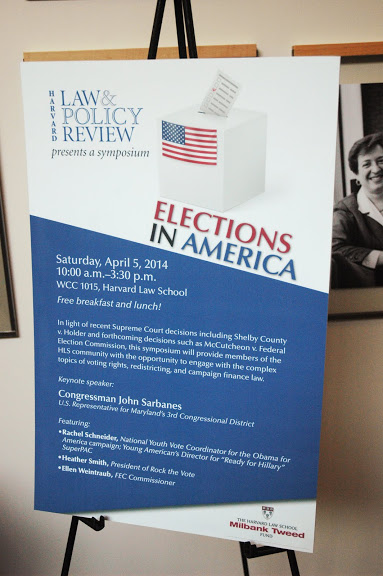HLPR Online has just released two new student notes, Modern Approaches to Financial Crime by Andrew Chinsky and Electoral Reform After McCutcheon by Tom Watts.
Modern Approaches to Financial Crime
Judges, elected politicians, and the public at in the United States have started to express concern about how our government fights modern financial crime. Due to a lack of prosecutions surrounding the financial crisis of the late 2000s and other major financial crimes, some, such as Judge Rakoff of the Southern District of New York, now question whether more prosecutions of individuals or corporations are warranted. Prosecutors today often abandon traditional indictments against individuals or corporations in favor of negotiated deferred prosecution agreements, or DPAs. These DPAs spell out certain measures to be taken by companies to prevent future wrongdoing in exchange for a deferred or cancelled prosecution. DPAs can be helpful tools to avoid the economic calamity that ensues as a result of litigation, but they may not punish crimes in the most effective manner. This article examines current practices in fighting financial crimes, analyzes arguments for and against traditional prosecutions, and suggests a few policy options for our elected and appointed members of the government to consider.
Electoral Reform After McCutcheon
Congress is dysfunctional and has been at least since the beginning of 2011. It is setting records for passing the fewest laws in generations, and it deservedly earned reproach for dodging the most important issues facing the United States today. It cannot pass even popular legislation. The seeds of this dysfunction have been planted by the systems that we use to elect our representatives, and we can make real change if we reform those systems. This Note seeks to explore how we might do so. Progressives have rallied around outrage against the status of campaign finance, but I argue that this is a wrong turn; redistricting reform is a more promising issue that Congress and the states can address without constitutional concerns.

